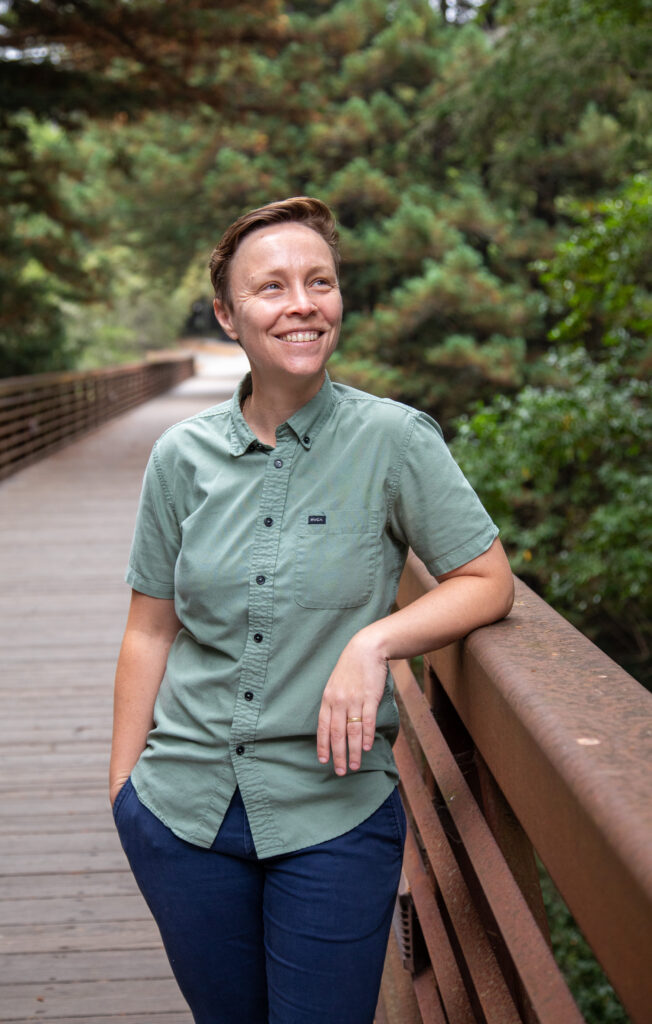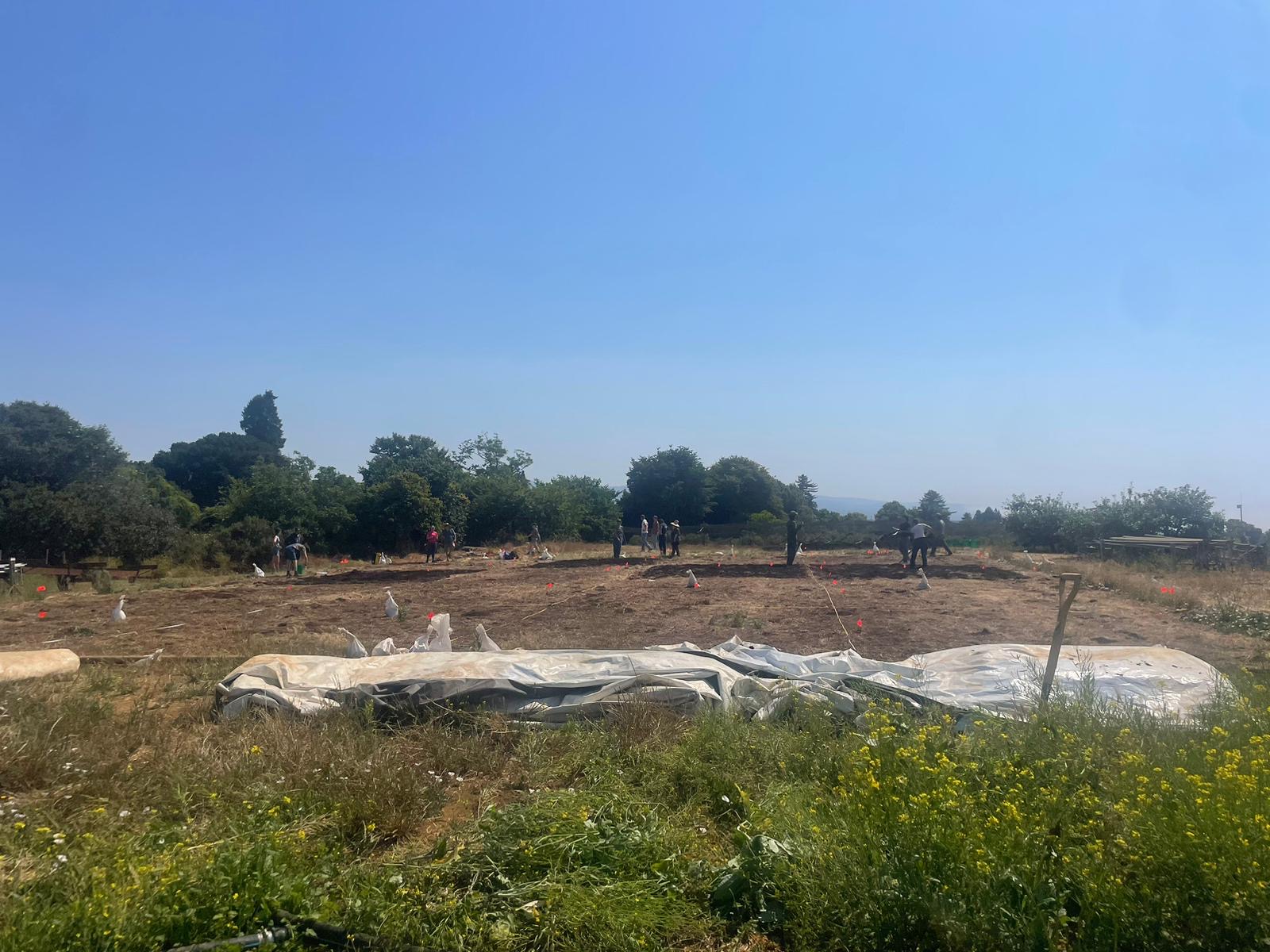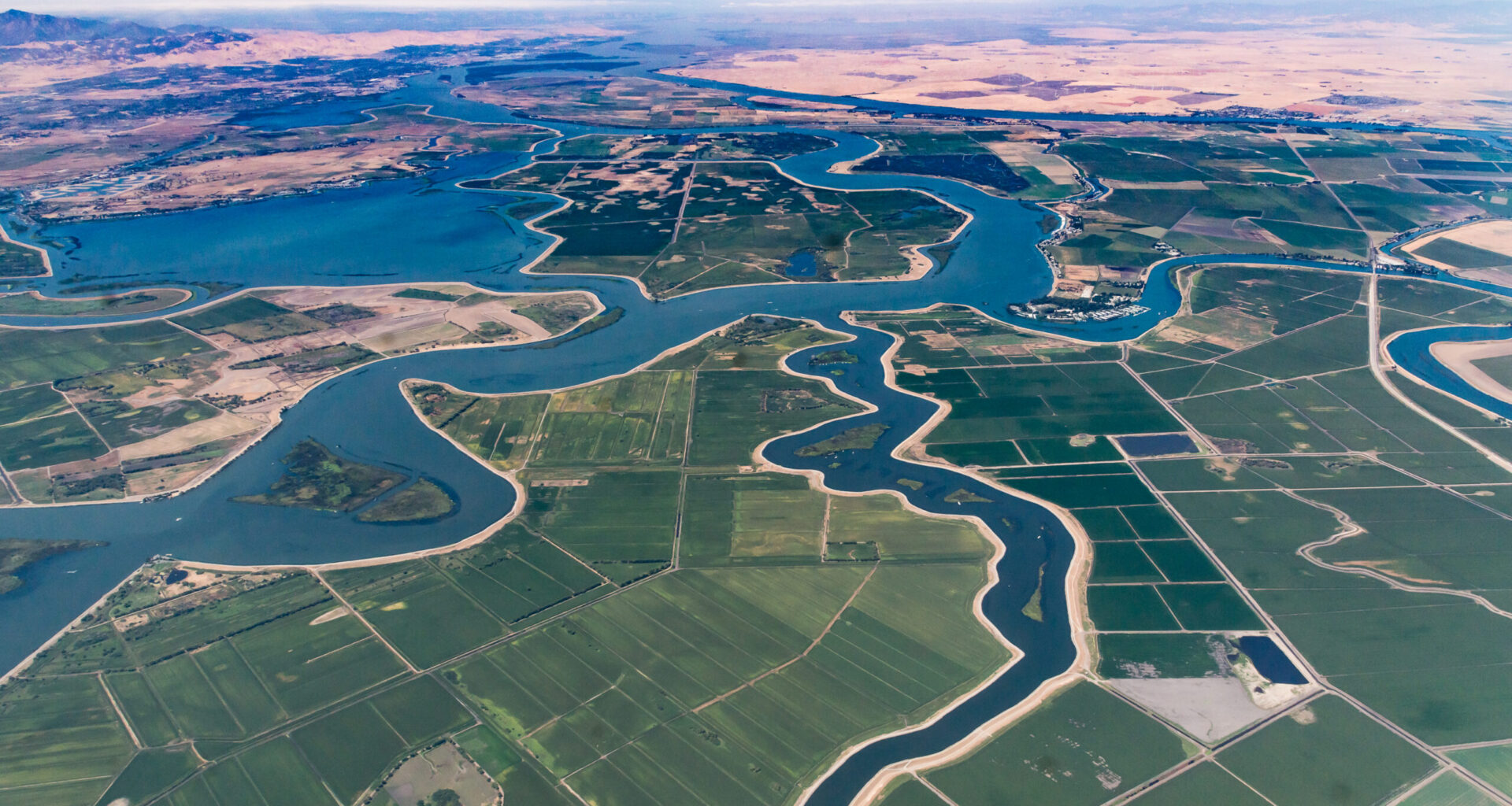California is one of the most agriculturally productive regions in the United States, but our watersheds face two problems: water scarcity and degraded water quality. To ensure the future of our food systems, we need to understand how soil health practices are applied in different climates and regions, and what policies inhibit or enable implementation.
Environmental Studies Assistant Professor Hannah Waterhouse’s work seeks to understand how tillage influences carbon and nitrogen cycles, to be able to secure water resources into the future and build soil health. Her goal is to increase farmers’ adoption of best practices that benefit their land and natural resources.
Waterhouse has recently been awarded the Foundation for Food & Agriculture Research’s New Innovator in Food & Agriculture Research Award for her research on soil health practices. This award provides early-career scientists with funding to help cultivate thriving agroecosystems, food chains, and communities. It will enable Waterhouse to continue her community-engaged research efforts, in collaboration with UC Santa Cruz’s Agriculture Experimentation Station (AES) and a group of 30+ local farmers across Central California.
Through this community of practice, her research integrates distinct forms of knowledge to develop locally relevant and durable solutions to the challenges facing rural communities. The study will address problems posed by water regulations and a water supply made less predictable by climate change. It also aims to bolster the health and livelihoods of rural communities by linking efforts to improve soil health with the creation of ecologically and socially just farming systems.
“I think California exemplifies the critical nature of the challenges that we’re facing, as well as some of the innovative solutions that could be adopted by communities all over the world,” she explained. “Communities who are empowered to advocate for different policies that benefit them or the agricultural system will lead to improved soil health and water and air quality. Especially in watersheds that are dominated by agriculture, there is a lot of land to leverage to help be part of the solution.”
 Hannah Waterhouse, Assistant Professor of Environmental Studies
Hannah Waterhouse, Assistant Professor of Environmental Studies
Studying conditions across Central California
The study pairs on-campus trials with farmer knowledge and experience, which will then be leveraged in a process-based model. This will help scale the collective knowledge of farmers to address the multitude of “wicked problems,” or complex and seemingly intractable issues, facing food producers and rural communities. In terms of the barriers to soil health practice implementation, these range from yield loss to groundwater overdraft, market access and land tenure issues.
This study also takes a layered approach to pinpoint how different soil practices—like no-till or reducing tilling, compost application, and cover cropping—are actively being used to affect soil health. Waterhouse will connect indicators like carbon storage, resisting erosion, water-holding capacity, nutrients, and pH levels to draw conclusions about the impact of management practices on soil health. The benefit of using this model is that, through intensive measurement, this experiment can be easily replicated in future research.
Participating farmers will also be surveyed to understand the pros-and-cons of adopting specific management practices and to track their observations and preferences. Waterhouse hopes that farmers’ integration into the research process will be a model for other researchers of the importance of co-creating solutions to soil management problems.
In addition to engaging farmers, this study folds in environmental justice organizations serving rural communities of color, conservation organizations, resource conservation districts, and policy makers, like the California Department of Food and Agriculture and state and regional water control boards. These organizations will be able to use what researchers learn to better inform environmental justice work and public policy directions.
 Pre-trial work at one field site, not funded by FFAR
Pre-trial work at one field site, not funded by FFAR
Impacting communities most affected by water scarcity and poor water quality
Typically, agricultural research is conducted using a top-down approach, positioning the researcher as having knowledge that is transferred to communities. This method has been shown to be ineffective in addressing many site-specific and complex environmental challenges. Waterhouse’s work turns this concept upside down by taking cues from farmers who are working on the ground.
“They have an immense amount of knowledge and are at the forefront of wanting to create ecologically and socially just farming systems,” she explained. “Working in partnership is really helpful because they see the big picture and can decipher what will and won’t work in reality. This exchange helps build more effective and durable outcomes.”
Many of these communities are living and working in communities that have already lost access to clean drinking water or are burdened by other environmental injustices, like bad air quality. By collaborating with researchers, they are able to be a part of fixing the environmental problems impacting their families and neighbors. Waterhouse believes these partnerships are vital in incrementally and systematically changing our agricultural systems for the better.
Much of this community-engaged work will deepen the relationships Waterhouse has built through her National Institute of Food and Agriculture (NIFA) funded cover cropping research with UC Berkeley colleagues Miguel Ochoa and Timothy Bowles, and Monterey County Resource Conservation District staff, Aysha Peterson and Sacha Lozano. This research looks at how the planting of off-season crops can impact water use, water quality, and soil conditions. By expanding our understanding of multiple soil management practices, farmers and researchers can evaluate structural and policy barriers to implementing new practices and determine the best options for their own fields and crops.

